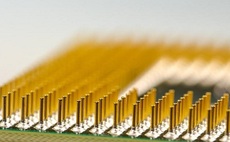Technology infrastructure master plan foresees unprecedented range of services
Each sport has its own section at the Atos Origin testing lab The Beijing Olympics are the most IT-enabled yet, with 4,000 IT staff compared with 3,600 in Athens four years ago managing venue...
To continue reading this article...
Join Computing
- Unlimited access to real-time news, analysis and opinion from the technology industry
- Receive important and breaking news in our daily newsletter
- Be the first to hear about our events and awards programmes
- Join live member only interviews with IT leaders at the ‘IT Lounge’; your chance to ask your burning tech questions and have them answered
- Access to the Computing Delta hub providing market intelligence and research
- Receive our members-only newsletter with exclusive opinion pieces from senior IT Leaders




















